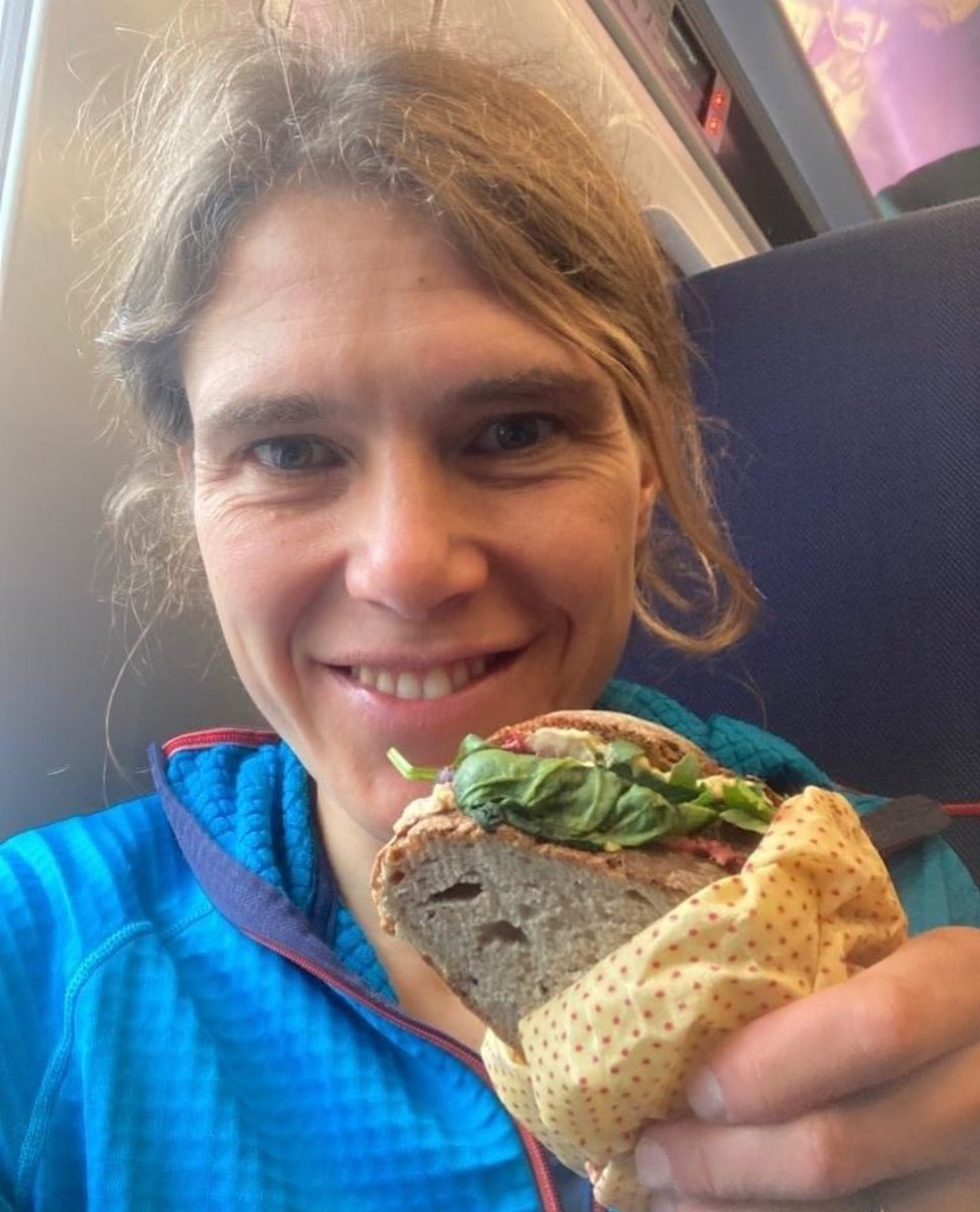To mark World Vegan Day (Nov 1) we’ve put together some top tips to reduce the environmental impacts of your diet.
One of the key pillars of The Green Runners is “How YOU Eat”, and while you certainly don’t need to be a vegan or vegetarian to be a Green Runner, we advocate trying to reduce your consumption of meat and focusing on high quality, locally-sourced produce wherever possible.
Changing our diet is one way to lessen our burden on the planet. According to The Vegan Society it takes at least three times the amount of water to feed a meat eater compared with that used to feed a vegan. For example, it takes 15,500 litres of water to produce 1 kg beef, contrasted with 180 litres for 1 kg tomatoes and 250 litres for 1 kg potatoes.
Animal-based foods tend to have a higher carbon footprint than plant-based. As referenced in this report lamb and cheese both emit more than 20 kilograms CO2-equivalents per kilogram. Poultry and pork have lower footprints but are still higher than most plant-based foods, at 6 and 7 kg CO2-equivalents, respectively.
We know that taking the first steps to change both diet and lifestyle can be a minefield, so for World Vegan Day we’ve pulled together some tips and resources that we hope will help you if you want to investigate a vegan way of life.
1. Take your time
Changing to a vegan diet doesn’t have to happen overnight. Remember to be kind to yourself and know it’s ok to gradually remove things slowly rather than quit every animal product all at once. For example, if you eat meat, try cutting it out for three days a week, and gradually build up to the full week.
When you’ve nailed that, maybe take cheese as your next ingredient to slowly drop from your diet. The vegan charity Viva! has great resources for anyone who is starting out their vegan journey with suggestions for those who are thinking about cutting animal produce out of their diets.
2. Don’t make it hard
Vegan cookery doesn’t have to be labour-intensive or challenging. Some of the best food is simple and fresh and takes minutes to prepare. It may take a bit of time to get used to new ingredients, but it can be fun following different recipes and finding out what meals you love most. One of our members Kayleigh has a website and vegan cookery book called The Happy Diet, which focuses on simple, affordable and delicious vegan meals. Another great place to get food inspiration is Bosh TV – here you can find speedy, cost efficient and simple dishes that all taste good.
3. Be mindful of your nutritional needs
Switching to a vegan diet shouldn’t mean cutting out vital vitamins and minerals. In fact, a vegan diet can be one of the healthiest diets around, but when you first start out you might want to take a supplement to ensure you’re getting everything you need. There’s a range of vitamins out there targeted specifically at vegans, but you won’t need all of them if you have a balanced diet. It is worth considering vitamin B12, iron, and vitamin D, but the best thing to do is chat to your GP before you make any major dietary changes to check you get everything you need.
Our member Laura, aka Vegan Fitness Runner, writes about some of the most popular supplements for vegans in this post.
4. Set yourself a goal
Having a focus can help with your vegan journey. As runners, we’re all for anything that involves running, which is why we love this initiative from Running on Plants. You can sign up for free to receive healthy eating and training plans to follow for a month. By running or walking a 5km beforehand, you make a note of your time, and then compare it after the month to see how much you’ve improved.
5. Join The Green Runners!
Joining with likeminded individuals is a great way to share hints and tips and have people who can hold you accountable.
The Green Runners not only support eating more sustainably, our pillars are: How YOU Move; How YOU Kit-up; How YOU Eat; How YOU Speak Out.
By making a pledge – maybe yours is to try a vegan diet, we have a community that can support you in your journey. Join us here!
6. Follow other vegan and plant-based influencers
With content sharing a way of life now, there’s no shortage of vegan influencers that can help you with advice, cooking tips, and information about veganism. Many of The Green Runners are vegans themselves, and you can follow them on Instagram – see our very own Damian Hall at @ultradamo, vegan author Kayleigh Webster at @the_happydiet and writer and podcaster Laura Briggs at @veganfitnessrunner
We also love: Fiona Oakes – incredible vegan ultrarunner and founder of Vegan Runners @oakes.fiona, Joey Carbstrong – vegan activist @joey_carbstrong, Forks over Knives – Free vegan recipes @forksoverknives.
Hopefully you found these top tips to reduce the environmental impacts of your diet useful.
As runners we love our food. Through having more plant based meals we can progress towards our vision of running without the footprint.
To learn more about the environmental benefits of a more plant-based diet, these articles are good places to start:
https://amp.dw.com/en/fact-check-is-eating-meat-bad-for-the-environment/a-63595148
https://amp.theguardian.com/environment/2021/sep/13/meat-greenhouses-gases-food-production-study
https://www.newscientist.com/article/dn16573-eating-less-meat-could-cut-climate-costs/


